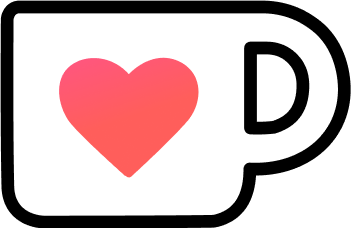Degoogle My Life
fuck off google

As you can guess, I’m an open-source advocate. I tend to avoid close source software and services. That includes Google. This is my tournament on getting rid of Google from my digital life.
1 Search Engine
Google has become the verb that almost everyone uses when searching for stuff online. And not gonna lie though, their search engine is the best as of now. But there are still some alternatives. And Duckduckgo is my choice. Duckduckgo claims not to track its users based on their search activities.
Although Duckduckgo is based in the US - one of Five eyes, I don’t take it as a big deal. Some may find it uncomfortable though. If it comes to that, then SearX may be your best bet.
Searx is a free internet metasearch engine which aggregates results from more than 70 search services. Users are neither tracked nor profiled. Additionally, searx can be used over Tor for online anonymity.
Also, you can self-host an Searx instance. The source code is available on Github. Or choose one from these public instances
2 Google Drive
I’m not the type of person that taking photos wherever they go. I do want to sync my documents and password database across devices though. Syncthing fulfils all my needs.
Syncthing is a continuous file synchronization program. It synchronizes files between two or more computers in real time, safely protected from prying eyes. Your data is your data alone and you deserve to choose where it is stored, whether it is shared with some third party, and how it’s transmitted over the internet.
I use a Raspberry Pi 4 (4GB) to host Syncthing, so I will have my devices connected and synced 24/24. Syncthing only works when your devices are on the same network. It may sounds ridiculous to you, but I like that option. I like having my data being synced on a local network rather than a public one. Also, it depends on my workspace, I fire up the computer, work,and all of my data getting synced to my Pi 4. Shut down and be done with it.
“What about the idea of working everywhere?”
I don’t. Simple enough.
“So what if I want to? Asshole.”
Well then take a look at Nextcloud. It’s a true alternative to Google drive. You can of course self-host it. I myself want a simpler solution, Nextcloud is too overkill for my needs.
3 Google Mail
There are tons of email providers and I’m not gonna list them here. Thankfully, good people at PrivacyTools make a nice list of “Best Secure Email Providers for Privacy”. Check it out.
4 Youtube
This one is the hardest. I’m not yet quitting YouTube. Not a little bit. Not that there is no alternative for Youtube. In fact, there are many of them: Peertube, Dtube,… and more tubes. The problem is this kind of platform greatly depends on its users. I’d recommend Peertube for those looking for open source alternatives.
5 Note
I note in markdown. So I use Syncthing to sync my markdown notes. On Android, markor is my note and todo apps. On my desktop, it’s vim.
6 Google contact and calendars
I mostly use my phone to keep track of my calendar and store my contacts. So the idea is to only keep a backup of those data on another machine. Well, this again, come to Syncthing as a solution (it’s my swiss knife). Thanks to DecSync, it makes everything easier.
7 Google Maps
If you haven’t tried OpenStreetMap yet then check em’ out.
OpenStreetMap is a collaborative project to create a free editable map of the world.
On Android, I use OsmAnd~ which is a front-end of OpenStreetMap. The map data might be not as good as Google Maps but hey, you can always contribute to make it great.
8 Google Hangouts/Chat,…
If you really care about the privacy and security of your conversations, a decentralized, E2EE (end to end encryption) and open source messaging service is a great alternative to other proprietary softwares.
XMPP is my prefered communication protocal. XMPP stands for Extensible Messaging and Presence Protocol. And if you are looking for something like Discord then Matrix maybe your friend. You can also take a look at Signal if register an account with an email address and remembering password is too hard for you.
 Support Me on Ko-Fi.com
Support Me on Ko-Fi.com